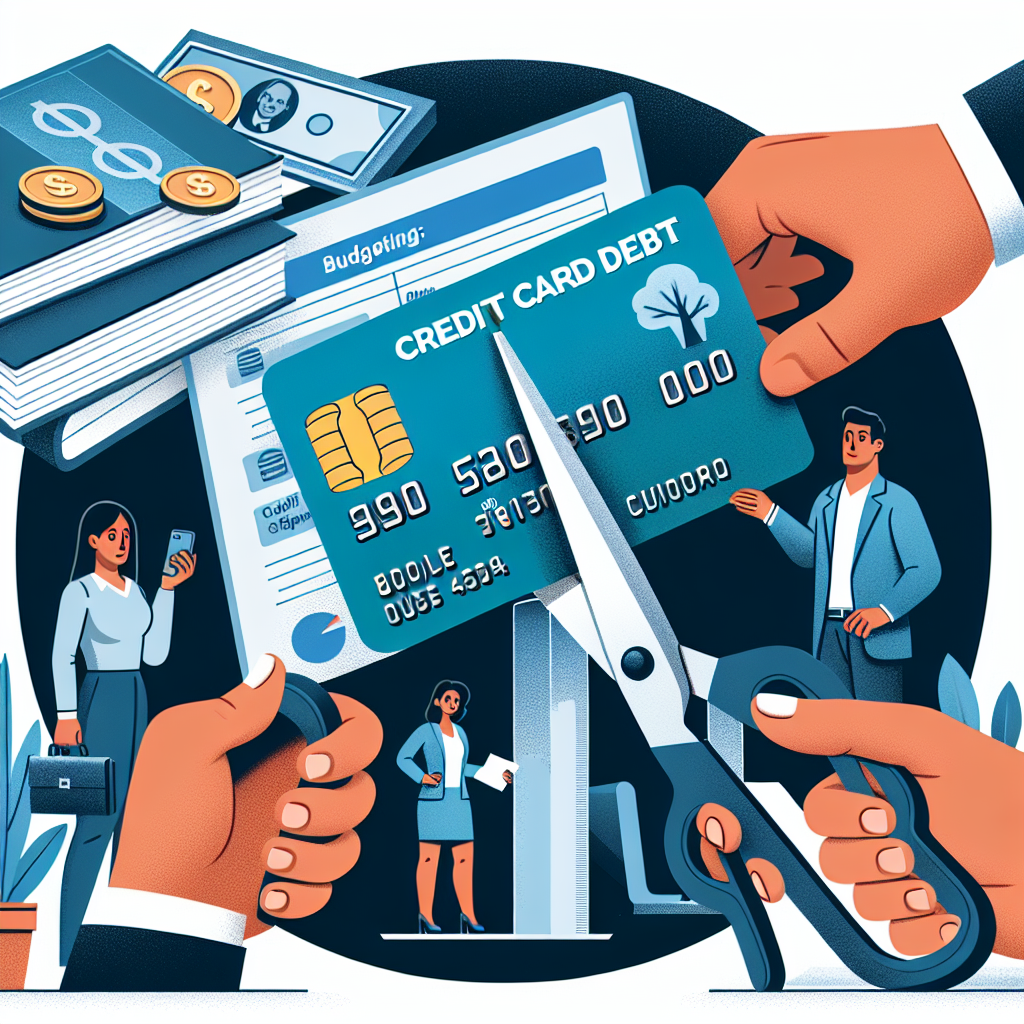Credit card debt is a common financial hurdle that many individuals face, often leading to stress and financial instability. Understanding how to effectively manage and eliminate this debt is crucial for achieving financial freedom. This article will guide you through understanding the causes of credit card debt, creating a realistic budget, exploring debt consolidation options, and building long-term financial habits that promote stability.
Understanding the Root Causes of Credit Card Debt
Credit card debt often stems from a variety of factors that individuals may not be fully aware of. One primary cause is overspending, which can occur when one relies on credit cards for purchases beyond their means. This habit is often facilitated by the convenience and accessibility of credit cards, leading to a cycle of spending that exceeds income. For a detailed explanation of the impact of overspending, consider visiting Investopedia’s article on credit card debt{:target="_blank"}.
Another common root cause is the high-interest rates associated with credit cards. Many individuals are unaware of how quickly these rates can inflate their debt, especially if payments are not made in full each billing cycle. Understanding how interest is calculated and applied can help individuals better manage their payments and reduce the total interest paid over time. For further reading on interest rates, you can explore our detailed guide on understanding credit card interest rates.
Unexpected life events, such as medical emergencies or job loss, can also lead to accumulating credit card debt. During these times, people may turn to credit cards as a financial lifeline, inadvertently creating large balances that are difficult to pay down. It’s important for individuals to have an emergency fund to mitigate this risk and reduce reliance on credit in times of need. Learn more about creating an emergency fund in our article on financial preparedness.
Crafting a Realistic and Effective Budget Plan
Creating a budget is a fundamental step towards eliminating credit card debt. Start by assessing your current financial situation, including your income, expenses, and the total amount of debt owed. This process involves tracking your spending habits and identifying areas where you can reduce or eliminate expenses. To get started with budgeting basics, check out our comprehensive budgeting guide.
A crucial aspect of budgeting is prioritizing debt payments. Allocate a specific portion of your monthly income towards paying off credit card debt, focusing on the card with the highest interest rate first. This strategy, known as the avalanche method, helps reduce the total amount of interest paid over time. Alternatively, the snowball method, which focuses on paying off the smallest debts first, can provide a sense of accomplishment and motivation. Both methods have their advantages, and selecting the right one depends on personal financial situations. For more insights into these debt repayment strategies, visit NerdWallet’s guide on debt reduction{:target="_blank"}.
Consistency is key in sticking to a budget. Regularly review your financial plan and make adjustments as necessary to accommodate changes in income or expenses. Using budgeting tools and apps can simplify this process and help you track progress over time. For additional resources on budgeting tools, explore our article on financial management apps.
Exploring Debt Consolidation and Settlement Options
Debt consolidation is a viable option for individuals struggling with multiple credit card payments. This process involves combining several debts into a single loan with a lower interest rate, making it easier to manage and pay off over time. Personal loans, balance transfer credit cards, and home equity loans are common methods of debt consolidation. Each option has its pros and cons, and it’s essential to understand them before proceeding. For a detailed exploration of these options, refer to Bankrate’s comparison of debt consolidation methods{:target="_blank"}.
Debt settlement is another alternative that involves negotiating with creditors to pay a reduced amount in full settlement of the debt. This option should be approached with caution, as it can negatively impact your credit score and may not always be successful. It’s often recommended to work with a reputable debt settlement company or financial advisor to navigate this process effectively. For more information on debt settlement, read our article on debt negotiation strategies.
Before opting for debt consolidation or settlement, it’s crucial to evaluate your financial situation and determine the most suitable course of action. Consider consulting with a financial advisor to understand the potential risks and benefits associated with these options. Our financial consultation services page provides further details on how to seek professional guidance.
Building Long-term Financial Discipline and Habits
Achieving long-term financial stability requires developing disciplined money management habits. One of the most effective ways to do this is by setting clear financial goals, such as saving for retirement, building an emergency fund, or investing in education. Having specific objectives can provide motivation and direction in managing finances. For tips on setting financial goals, explore our goal-setting framework.
Creating and maintaining an emergency fund is essential for preventing future reliance on credit cards during unexpected events. Aim to save at least three to six months’ worth of living expenses in a separate account designated for emergencies. This fund not only provides peace of mind but also helps avoid accruing additional debt during challenging times. Learn more about building an emergency fund in our detailed article on financial resilience.
Continuously educating yourself about personal finance is critical for long-term success. Attend workshops, read books, or take online courses to improve your financial literacy. Understanding key concepts such as budgeting, investing, and credit management will empower you to make informed decisions. For a curated list of financial education resources, check out our learning center.
Eliminating credit card debt is a challenging but achievable goal with the right approach and mindset. By understanding the root causes, crafting a realistic budget, exploring consolidation options, and building lasting financial habits, you can take control of your financial future. Remember that progress takes time and patience, but with consistent effort, financial freedom is within reach.
Emergency debt help servicesHow to qualify for a consumer proposalAffordable debt repayment plansRelevant LinkRelevant LinkRelevant Link
